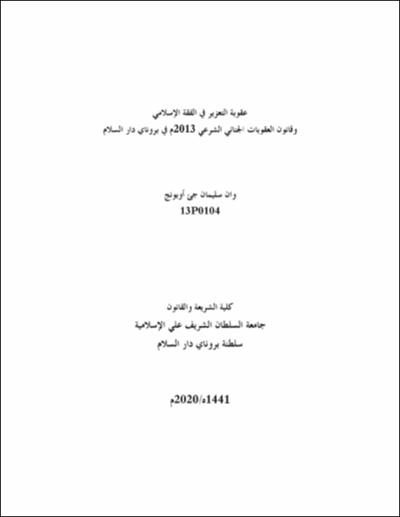| dc.description.abstract | The problem with research is that there are many crimes in Brunei Darussalam, and these crimes are increasing day by day, and they do not have a penalty estimated for the felonies. Therefore, the judge goes to the promotive punishments that are found in 2013 Shari’ah Criminal Penal Code in Brunei Darussalam. The other problem is that is the Shari’ah criminal penal code consistent with the reinforcement penalties in Islamic jurisprudence or is it different? The research aims to shed light on the concept of reinforcement in Islamic jurisprudence and Brunei Shari’ah criminal penal law and clarify the opinions of jurists and Shari’ah criminal lawmen on the legitimacy of reinforcement, and to control the crimes that can be reinforced in the Brunei Shari’ah criminal penal law increased its legitimacy, also the research aims to clarify the points of agreement Or the difference between the Islamic criminal law and Islamic jurisprudence. As for the approach that the researcher relied on in his study, it is the inductive approach that extrapolates the sayings of jurists and follows their opinions in the stomachs of old books, and the comparative approach. The researcher compares, weighs, and balances between Islamic jurisprudence and preponderances between those views and the most correct choice from them. At the end of the research, the researcher reached a set of the results, the most important of them are: Islamic law is integrated, faired in its rules and regulations in the entity of human life, and God's mercy requires in the imposition of barriers and projections of these penalties. The researcher found in this study that the Bruneian Shari’ah criminal penal code currently does not depend entirely on the jurisprudence of Imam Al-Shafi‘i, as it depends in some issues on the other doctrines that the criminal law complements some of its questions from proving the legal texts, and sometimes it may lack the basis of Shari’ah punishment from Islamic jurisprudence in detail. | en_US |



